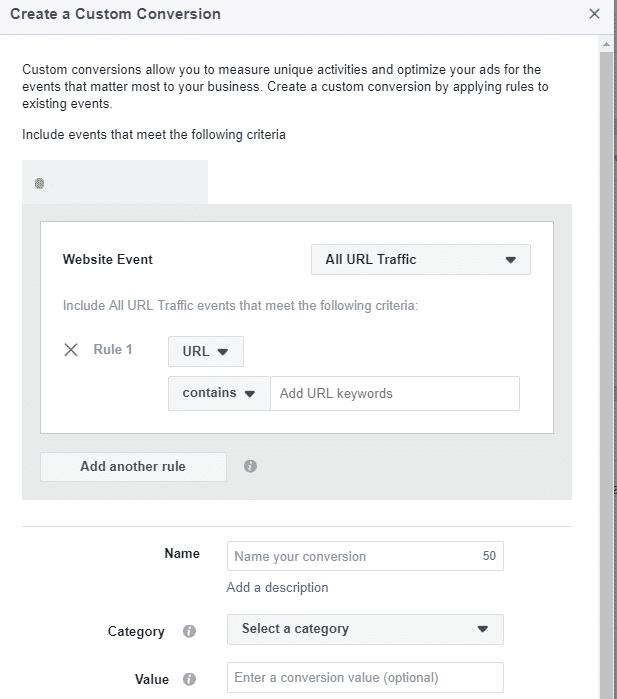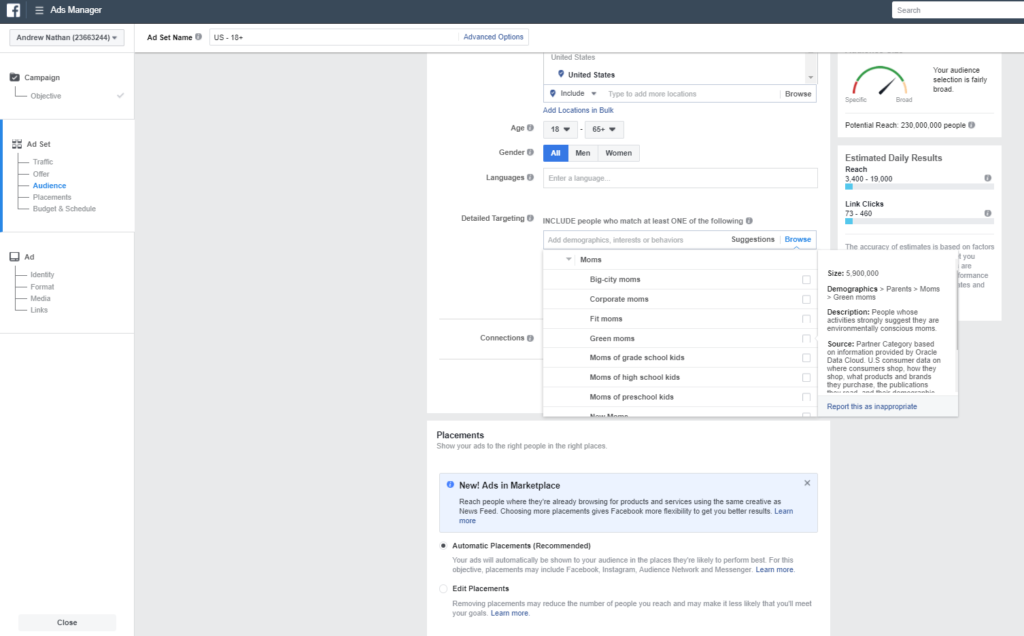Overview
If you use Facebook to advertise your business, you probably know about the Cambridge Analytica data breach of over 50 million Facebook profiles. As a result, the social network has made a number of changes to its platform. These changes will alter your Facebook ads as well. By understanding them, you are in a better position to determine what you can and cannot do. In today’s digital age, privacy has become a hot topic of discussion, especially in the context of social media platforms like Facebook. With an ever-increasing number of users sharing personal information and engaging with online content, concerns about privacy and data security have reached new heights. This has significant implications for businesses, particularly those leveraging Facebook’s advertising capabilities to reach their target audience. In this blog post, we will delve into the topic of Facebook privacy and explore what it means for your ads. Facebook, being one of the largest social media platforms worldwide, has amassed an enormous amount of user data. This data is not only valuable to marketers but also subject to scrutiny regarding how it is collected, stored, and used. Privacy regulations, such as the General Data Protection Regulation (GDPR) and the California Consumer Privacy Act (CCPA), have emerged to address these concerns and grant users greater control over their personal information. Understanding the impact of Facebook’s privacy policies on your advertising efforts is crucial to ensure compliance, maintain user trust, and maximise the effectiveness of your ad campaigns. This blog post will provide insights into the changes implemented by Facebook to enhance user privacy and the implications for advertisers. We will explore the adjustments made to Facebook’s targeting capabilities, tracking mechanisms, and ad measurement tools in response to privacy concerns. Furthermore, we will discuss strategies that businesses can employ to navigate these changes and continue to leverage Facebook’s advertising platform effectively. By staying informed about Facebook’s evolving privacy landscape, businesses can adapt their advertising strategies, respect user privacy preferences, and deliver targeted ads to the right audience while maintaining a high level of trust and transparency. So let’s delve into the world of Facebook privacy and its implications for your ad campaigns.What are the new changes?
Facebook just announced that they will shut down Partner Categories for advertisers. These categories are part of the detailed targeting listed on the Facebook Guide Ad set up. Essentially partners like Experian and Acxiom provide data to Facebook to help them improve the quality of their ad targeting. For example, if you want to target environmentally-conscious moms, you can currently use the data from the Oracle Data Cloud. While they only provide data on this topic for Green Moms in the United States, a number of data providers like Acxiom and Quantium share information about consumers in Australia with Facebook advertisers. Because of the new General Data Protection Regulation (GDPR) rules in Europe, Facebook has found it easier to use data from its own platform instead of working with third-party providers. The social network will close access to the partner categories in Europe on May 24th. Subsequently, they will shut down the rest of the world’s access to partner categories data between the summer and fall.What can you still use?
#1. Facebook data
The reams of data collected on their social network right now are still open for use. Therefore, if you normally get targeted data that Facebook collects from profiles and newsfeeds, you still have access to this information. Facebook only restricts data from other vendors. Because they have so much activity on their website, you still get access to this large pool of data for your Facebook advertising. The challenge is that Facebook alone cannot collect data on everything going on in consumers lives alone.#2. Website retargeting
many advertisers do retargeted marketing to prospects who have already visited their website. This information completely qualifies as a valid method for marketers to improve the quality of their ad targeting. In this case, you will need to add the Facebook Pixel code to your website. You simply copy and paste the code to your website header. If you use a Content Management System (CMS), you should be able to use a plugin or extension to add this code. If you have a static website, ask your web developer for assistance. Every visitor who comes to your site that Facebook identifies can be targeted for Facebook ads the next time they use the social network. For example, let’s say you receive 1,000 visitors to your website every month. The Facebook pixel tracks 500 of those visitors to current Facebook profiles. You can then target a Facebook ad to those 500 based on their browsing history on your website. Facebook has a few options including traffic and conversion pixels based on what actions were taken.
#3. Your own data
one unique feature added a few years in the Power Editor is the ability to add email contacts to help with targeting Facebook ads. It is similar to the feature that allows businesses to invite email contacts to like their Facebook page. If you have an email list of 5,000 subscribers, you can add that list to your Facebook Power Editor. Facebook then matches the list of emails to active profiles. The process works like the Facebook Pixel process discussed in step two. The interesting part of this equation is that businesses can buy data like email addresses from third-party providers like Experian or Acxiom. While we would not encourage this, it is possible to jumpstart targeting based on third-party data.
Final Thoughts
The changes happening on Facebook right now undermine the last few years as their advertising program promised more and more data for better-targeted ads. Fortunately, you can still promote your brand. It just might take a little more work by gathering more of the data you need to improve your results. If you are ready to continue marketing your business, then let us help you! Our team at Shout can help you keep up with the changes on Facebook, as you connect with targeted prospects who want to use your services. Contact us today for a free consultation.We are digital marketing experts



![How to Choose a Digital Marketing Agency in Australia That Grows Revenue [Updated 2026]](https://c02ef99a.delivery.rocketcdn.me/wp-content/uploads/2026/01/shout-digital-blog-thumb-388x261-how-to-choose-a-digital-marketing-agency-in-australia.png)
